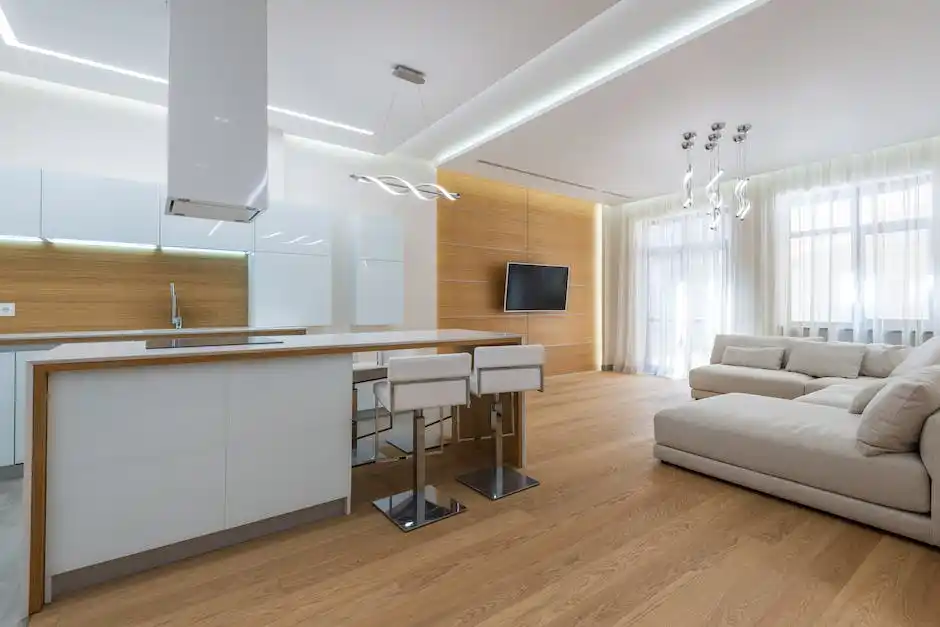When it comes to purchasing a computer, one of the most important factors to consider is price. You may be wondering, are laptops more expensive than desktops? With so many different models and types of computers on the market, it can be difficult to determine whether a laptop or desktop is the right choice for you.
To help you decide, this article will compare the prices of laptops and desktops to better understand which type of computer is the best value for your money.
Are Laptops More Expensive Than Desktops?
When it comes to the cost of a laptop versus a desktop computer, it is generally accepted that a laptop is a more expensive option. This is due to the fact that laptops are typically much smaller and more compact than desktops and therefore require a higher level of engineering to produce.
Laptop components also tend to be more expensive as they need to be more energy efficient and require more intricate designs. Also, laptops are often more expensive because they are portable, meaning that they can easily be carried around and used in various locations.
In comparison, desktops are generally less expensive than laptops. This is primarily due to their larger size and the fact that they are typically not as portable. Desktops are generally easier to assemble and require fewer components, making them cheaper. Desktops also tend to be more powerful than laptops, as they are able to support more components and run more powerful programs.
When comparing the cost of a laptop versus a desktop, it is important to consider the purpose for which the computer will be used. For instance, if the computer is going to be used for more intensive tasks such as gaming or video editing, then a more powerful desktop will likely be the better choice. On the other hand, if the computer is going to be used for more basic tasks such as web browsing and word processing, then a more affordable laptop might be the better option.

Cost Of Laptops Vs. Desktops
The cost of laptops and desktops can be a major factor when it comes to selecting a computer for personal or business use. While laptops have become increasingly popular for their portability, desktop computers still offer a variety of benefits that can make them the better choice in some cases. In order to make an informed decision, it is important to consider the cost of each type of computer.
When it comes to the cost of laptops, it is important to note that they tend to be more expensive than desktop computers. This is due to the fact that laptops are designed with portability in mind, so they must be smaller and lighter than a desktop. Additionally, laptops tend to have fewer upgrade options, which can also add to the cost. On the other hand, desktops can usually be upgraded more easily, and they tend to be more powerful overall due to the larger form factor.
In terms of upfront cost, desktops tend to be the more economical option. While some laptops can be quite expensive, finding a good desktop computer for a relatively low price is possible. This cost savings can be especially beneficial if a computer will be used for a business, as it can allow the business to purchase more powerful hardware for the same amount of money.
When considering the cost of laptops and desktops, it is also important to consider the long-term cost. Laptops tend to have a shorter lifespan than desktops due to their smaller form factor and lack of upgrade options. This means that a laptop may need to be replaced more frequently than a desktop, which can add to the overall cost. On the other hand, desktops can often last much longer than laptops due to their upgradability.
Laptop Vs. Desktop Performance
Laptops and desktops are two of the most popular types of computers, and the comparison between their performance has been a hot topic of discussion for many years. Laptops and desktops have their own strengths and weaknesses, and both offer unique advantages over the others.
When it comes to performance, both laptops and desktops offer a variety of benefits. Desktops typically offer more power and flexibility, with a larger number of components that can be upgraded more easily. This makes them ideal for more intensive tasks like gaming, video editing, or heavy multitasking.
On the other hand, laptops are generally more portable and require less power to run, making them better suited to those who need to take their computer with them on the go. Also, laptops have a smaller form factor and are more energy efficient, making them better for those looking to save on electricity bills.
However, it is worth noting that laptops and desktops differ greatly in terms of price. Laptops are generally more expensive than desktops, as they come with specialized components and features, such as a touchscreen or backlit keyboard. Additionally, laptops come with a higher price tag due to their portability and battery life. On the other hand, desktops tend to be much cheaper, as they are designed to be used at home and do not require a battery.
Ultimately, the decision between a laptop and a desktop comes down to personal preference and budget. Those looking for a powerful machine with much upgradability should opt for a desktop, while those who need something more portable may want to consider a laptop. Additionally, those looking for a more cost-effective option should consider a desktop over a laptop.
Portability Of Laptops Vs. Desktops
The portability of laptops and desktops has been a major factor when it comes to comparing the two types of devices. The main advantage of having a laptop is that it is highly portable, allowing users to take it anywhere they wish. This means that users can work on the go in an airplane, coffee shop, or at a friend’s house. Furthermore, laptops are far more compact and lightweight compared to desktops, which often take up much space. Also, laptops usually come with a carrying case, making them more convenient to transport.
On the other hand, desktops are not as portable as laptops, and they can be quite heavy and bulky to move around. As such, they are mainly used in one location, such as an office or a home. Desktops are also much more affordable compared to laptops, as they have fewer components and require less maintenance. Furthermore, desktops typically have more powerful processors and more storage space than laptops, which are better for applications that require a lot of power, such as gaming, video editing, and 3D rendering.
When it comes to price comparison, laptops are typically more expensive than desktops. This is due to their portability factor, as well as their overall design and components. Laptops have shorter life spans than desktops, as their components become outdated faster. However, this is not always the case, as there are many laptops that are more affordable than desktops.
Customizability Of Laptops Vs. Desktops
When it comes to deciding between purchasing a laptop or a desktop, the most important factor to consider is the customizability of each device.
Desktops are typically more customizable than laptops. This is because the components of a desktop are easily upgradeable, allowing users to change the internal components to meet their needs. For instance, the processor, the RAM, the graphics card, and the storage capacity of a desktop can all be replaced or upgraded with the help of a specialist, depending on the user’s budget and requirements.
On the other hand, laptops are limited in customization options since the internal components are usually soldered onto the motherboard, making it impossible for users to upgrade or replace the components themselves.
Another advantage of a desktop is that it typically offers more ports than a laptop. Desktops have a wide variety of ports, including USB, HDMI, Ethernet, VGA, and more. This allows users to connect multiple external devices to the desktop, such as speakers, printers, scanners, and other peripherals. On the other hand, laptops are limited to a few ports and cannot support many external devices.
In terms of price, laptops are generally more expensive than desktops. This is because laptops are more compact and portable, which makes them more expensive to manufacture. Additionally, laptop components are usually more expensive and harder to come by than desktop components, making them more expensive to upgrade.

Maintenance Requirements of Laptops Vs. Desktops
When it comes to deciding between a laptop and a desktop, one of the most important factors to consider is the maintenance requirements of each. Laptops, being portable and compact, are designed to fit into a smaller space and require less maintenance than their desktop counterparts. They also tend to be much more energy efficient, which is an important factor to consider when trying to keep energy costs down.
When it comes to the physical maintenance of a laptop, there are fewer moving parts compared to a desktop, which can result in fewer breakdowns and costly repairs. A laptop typically requires only occasional cleaning of the keyboard and components, as well as regular software updates. In addition, the laptop’s battery should be checked periodically for performance, and its heat sink should be kept clean.
On the other hand, desktop computers require more frequent cleaning and maintenance. The case should be cleaned regularly to remove dust and other particles from the components. The fans should be checked and cleaned regularly, as well as the heat sink and other hardware components. Desktops also require regular software updates and antivirus protection. In addition, the hardware components may need to be replaced or upgraded over time.
In terms of cost, laptops are typically more expensive than desktops, as they are designed to be more space-efficient and energy efficient. While this may be a downside to some, it is important to remember that the laptop is usually a better investment in the long run, as it is less likely to require costly repairs and will typically last longer than a desktop.
Durability Of Laptops Vs. Desktops
The age-old debate of laptops vs. desktops comes to mind when it comes to computers. Many people prefer laptops because they are portable and easy to transport, while others prefer the power and versatility of desktops. While both have advantages and disadvantages, one of the most important questions is which is more durable.
When it comes to durability, desktops typically have the edge. While laptops have become more durable over time, they still don’t compare to the sturdiness of a desktop. Desktops are usually made of more durable materials, such as metal and plastic, and are typically better protected from accidental damage. Additionally, components such as the hard drive, RAM, and motherboard are protected from dust and other environmental factors.
On the other hand, laptops are more vulnerable to damage. Their thin and lightweight nature makes them more prone to accidental drops and spills. Additionally, their inner components are less protected from dust and other environmental factors. As a result, laptops tend to need more frequent repairs and replacements due to wear and tear.
Furthermore, when it comes to price, desktops tend to be more cost-effective in the long run. While laptops may be cheaper upfront, they tend to require more frequent repairs and replacements due to their more fragile nature. Additionally, desktops usually come with more powerful hardware and are more expandable in terms of storage and RAM. This can be a great option for those who are looking to use their computer for more intensive tasks, such as gaming or video editing.
Upgradability Of Laptops Vs. Desktops
When it comes to choosing the right computing device for your personal or business needs, laptops and desktops are two popular options. Laptops are often preferred for their portability and convenience, while desktops are often seen as more reliable and powerful machines. But when it comes to upgradability, how do laptops and desktops compare?
One of the biggest advantages of a desktop is its upgradability. Since desktops are larger and more powerful than laptops, they tend to be more upgradeable. Most desktop components are easily accessible and can be swapped out for more powerful components when needed. This means that you can update the processor, RAM, storage, graphics card, and other hardware components to meet the needs of your ever-changing computing requirements.
On the other hand, laptops are generally not as upgradeable as desktop PCs. While some laptops have user-replaceable components such as RAM, hard drives, and optical drives, most components are soldered to the motherboard and cannot be upgraded. This means that while laptops may be able to handle basic tasks such as web browsing or word processing, they may not be able to handle more intensive tasks such as gaming or video editing.
Another factor to consider when looking at upgradability is the cost. The cost of upgrading a desktop can be relatively low, depending on the components that you need. By contrast, upgrading a laptop can be significantly more expensive, as laptop components tend to be more expensive than desktop components.
Finally, it’s important to note that both laptops and desktops have their own advantages and disadvantages when it comes to price. While laptops tend to be more expensive than desktops, they offer portability and the convenience of being able to work from anywhere. On the other hand, desktops tend to be more affordable, but they require a dedicated workspace and are not as portable as laptops.
Which Is Better for A Student Laptop Or A Desktop?
When it comes to choosing the right computer for a student, there is one major factor that needs to be considered: price. Desktops and laptops are both popular choices, but which is the better option for students on a budget? To answer this question, let’s look at the price comparison between the two.
When it comes to desktops are generally more affordable than laptops. Prices can range from $200 to even $2000, but the majority of desktops are around the $500-$700 range. This makes them accessible to most students, and they often come with more power and features than their laptop counterparts.
Desktops also typically come with more RAM and storage space than laptops, which can help with multitasking and running more demanding software. On the other hand, desktops are not as portable as laptops, and they require more space for setup.
On the other hand, laptops can cost anywhere from $500 to over $2000, depending on the model. Students who are looking for a laptop for basic tasks can find cheaper models with enough power to handle most activities. On the other hand, students who need more powerful machines for more demanding tasks may have to spend more money. Laptops come with the advantage of portability, however, which is great for students who need to take their computers to class or other places.
So, which is the better option for students on a budget? Well, it depends on what the student needs. If portability is a priority, then a laptop might be the better option. But if price and power are the main concerns, then a desktop might be the best choice. Ultimately, it’s up to the student to decide which would be the better option for them.
Conclusion
In conclusion, the cost of a laptop and desktop can vary greatly depending on the specifications and power of each device. Generally, desktop computers are more cost-effective than laptops, but laptops may be the better option for those who need portability or convenience. Ultimately, the choice between a laptop and a desktop computer depends on the user’s individual needs and budget.
Frequently Asked Questions:
Why do laptops tend to be more expensive than desktops?
Laptops tend to be more expensive than desktops because they are more portable, have more advanced components, and are more energy efficient. Additionally, laptops are often built with additional features such as touchscreens and longer battery life. Finally, laptops may contain more expensive parts due to their smaller form factor and the difficulty of replacing components.
Which is cheaper, a laptop or a desktop?
It depends on the specs and features of the computer. Generally, laptops are more expensive than desktops due to their portability and convenience. However, a desktop can often be cheaper if you are looking for a basic computer for basic tasks.
What is a more expensive laptop or desktop?
The answer depends on the specific laptop and desktop models being compared. Generally, laptops are more expensive than desktop computers due to their portability and convenience factors.
Why is a PC cheaper than a laptop?
PCs are generally cheaper than laptops due to several factors. PCs are typically more customizable and easier to upgrade than laptops, allowing buyers to purchase components separately and build their own systems. PCs also offer more flexibility and choice when it comes to hardware components, while laptops come with pre-selected parts. PCs often use cheaper components than laptops, making them cheaper. PCs have a longer life cycle than laptops, so they can last longer and cost less in the long run.
